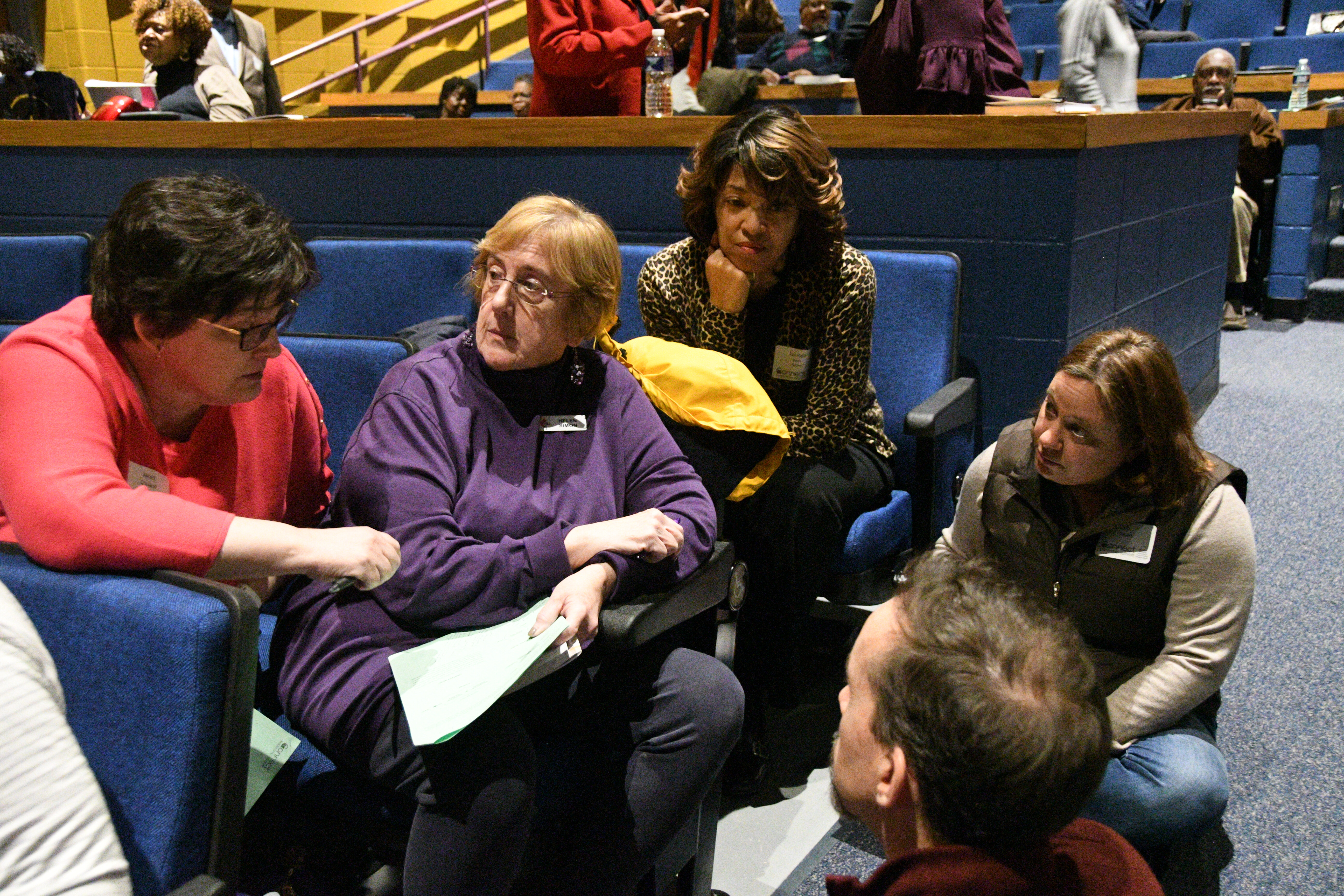
Summit offers new ideas on leadership
The Baltimore- Washington Conference entered a new age of training with the inaugural Connect Leadership Summit, held March 7 and 14 in four regional locations.
“The age of 'one and done' is over,” said the Rev. Bill Brown, the conference director of New Faith Expressions. Training at the conference level will now be designed for participants to take resources and knowledge back to their local churches to expand the impact.
The Connect Leadership Summit also featured the creation of six tracks, which will draw people into cohorts for long-term, in-depth learning in six areas: deepening discipleship, abundant health, generosity generators, new level leaders, new faith expressions, and young people’s ministry.
Update since article was written:
In an effort to mitigate the spread of the coronavirus, the Connect Leadership Summit for the Western and Southern regions on March 14 has been postponed and will be rescheduled at a future date.
“This is a new day,” said the Rev. Rodney Smothers. The Connect Leadership Summit “is laying a foundation for learning.”
Rather than a plenary address, the Summit’s speaker, Daniel Im, provided four Ted-talk style videos and participants divided into small groups to discuss how the lessons could be applied at their churches. Those who registered were given copies of Im’s book, “No Silver Bullets,” access to the summit videos, an online workbook, and a chance to follow up with Im in an online question-and-answer session March 24.
Im, who pastors Beulah Alliance Church in Edmonton, Canada, was chosen to speak to BWC leaders because of his unique perspective on creating discipleship systems.
Im stressed to those present that, in today’s culture, everyone is looking for the quick fix, the magic bullet that will solve all their problems. “We’ve been conditioned for the instant, it’s our hidden addiction,” he said. But leaders today need to realize “it was by perseverance that the snail reached the ark.”
Rather than focusing on large and grand changes that people implement hoping to solve everything, Im recommended five “micro-shifts,” small, manageable changes that create a culture for transformation.
Principle among these changes is moving from a mindset of “destination to direction,” recognizing that discipleship is not about an end goal, but rather, is on-going process of growth and maturity. “It is about setting our eyes on Christ and continually moving toward him,” Im said.
Other micro-shifts include moving from output to input, from sage to guide, from form to function and from maturity to missionary.
With the move from output to input, Im first explained that there are eight outputs by which one can measure healthy discipleship. They are Bible engagement, obeying God, serving God and others, sharing Christ, exercising faith, seeking God, building relationships, and being unashamed of one’s faith.
But just focusing on these outcomes, rather than providing specific ways for people to grow in these areas, is not the best way to move forward. Im drew the analogy, “You can create conditions for sleep to come, but you can’t make yourself sleep,”
Churches need to focus on the specific inputs, the means that allow people to live faithfully and move toward Christ. There are many kinds of input, which include such things as reading the Bible, attending worship, serving in an area outreach, confessing your sins, and setting aside time for thanksgiving.
The outputs, Im said, will be a fixed part of everyone’s discipleship journey. The inputs, which are ways of helping develop the outputs, will vary with every church’s context.
But change is never easy, said Im. Churches, like organ donor recipients, reject the unfamiliar. They even fight it, fearful of the damage newness might bring.
Citing the work of John Kotter and Thom Rainer, Im outlined eight steps for leading fruitful change:
- Stop to pray;
- Confront and communicate a sense of urgency;
- Build an eager coalition;
- Become a voice and vision of hope;
- Deal with people issues and communicate the vision;
- Move from an inward focus to an outward focus;
- Pick low-hanging fruit, focusing on the easier solutions;
- Implement and consolidate change.
However, Im warned, “unless a change leads you closer to the vision God has called you to, you’re wasting your time.”
“Creating and managing meaningful change is going to be essential to church leaders in the season ahead. People who are caught up in the status quo are not going to survive,” said Smothers. “Effective leaders will need to be nimble, flexible, open to change, willing to share power and position, and sensitive to the cultural shifts that are happening in their midst.”
People who attended the Connect Leadership Summit “left with a lot of handles, a lot of practical information,” Smothers said. “Leaders in the church today don’t want to be caught sleeping, knowing a tsunami of change is heading their way. This is one of the first of many opportunities to inspire and equip leaders to connect more people to Jesus.”

